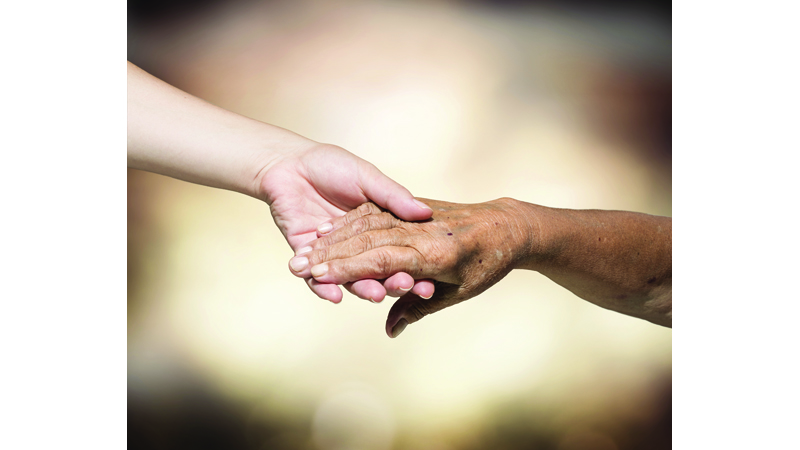Caregivers of elder family members worldwide face significant struggles and stress
Published 11:00 am Sunday, March 7, 2021
|
Getting your Trinity Audio player ready...
|
GOLDEN, CO /EINPresswire.com/ — Caregiving is not limited by time zone, culture, or country. The challenges experienced by caregivers worldwide are universal and life-affecting. Pamela D. Wilson, a caregiving expert, connects with caregivers worldwide every Wednesday throughThe Caring Generation® podcasts.
The effects of COVID have intensified the role strain experienced by caregivers. The long-term impact on all individuals’ mental and physical health will continue for years and result in many unintended consequences. Decision-making for elderly parentsadds complexity to the role of caregiving primarily managed by one daughter or son without the help of other family or siblings.
Time Constraints Result in Poor Health for Caregivers
Caregivers participate in negative health habits due to cutting corners on self-care and not dedicating time to take care of their health and well-being. Loss of sleep, poor diet, increased alcohol or substance use, lack of exercise, depression, and weight gain are typical among caregivers.
Workplaces have embraced family care policies to support young families with children; however, few have developed similar strategies for employees providing elder care. The emotional and physical stress of caregiving can be overwhelming. Caregivers lack education and strategies for what to do when caregiving becomes too much. It is common for caregivers to ignore or allow their health problems to go untreated until an adverse health event demands attention.
Caregiver Education is Lacking
Caregivers support sick or disabled siblings, aging or elderly parents, and spouses. Healthcare systems fail to recognize the critical role that caregivers have in helping family members remain independent.
Many are ignored or dismissed by medical professionals when attempting to advocate for care. Others lack the experience or knowledge to ask the right questions or follow through to obtain treatment for elders when experiencing aging healthcare bias or insurance declines.
The concept of preventative education is lacking in many parts of the world. While the United States is touted as having one of the best healthcare systems globally, there is not enough education about how to prevent disease or treat disease after diagnosis. Both caregivers and the elderly for whom they care lack the support and knowledge to care for their own health while caring for others.
A Lack of Education Impacts Health and Employment Opportunities
Education gaps about health, well-being, and navigating the healthcare system plus sacrificing education and employment to care for elderly parents have far-reaching consequences. Younger caregivers may delay or sacrifice educational opportunities to make time to care for the elderly. Education delayed may never be approached again resulting in fewer career opportunities or advancement.
Middle-aged caregivers who desire to reskill or advance their careers have little support to balance work, education, and caregiving. Instead, caregivers of all ages leave the workplace and struggle to return to employment when caregiving ends due to outdated skills. Some caregivers face discrimination and are viewed as less committed because of leaving the workforce to care for family members.
Few caregivers realize that the caregiving experience for elderly parents will soon apply to their lives. The idea of talking about caregiving in families is placed on the back burner until the caregiver or another person in the family needs care and the cycle of caregiving begins again.
Elderly Caring for Elderly
In many countries, aging populations are caring for aging populations. Adults in their 50’s and 60’s with their own health issues are caring for elderly parents in their 80’s or 90’s. The anticipation of a retirement filled with travel, volunteer work, and social activities disappears into years of daily care for elderly parents who may come to live in the homes of aging children.
Advancing age and declining health for all caregivers is resulting in a cycle of caregivers who if not today, will need the same care they are providing to aging parents. Greater demands for resources and assistance will continue to occur.
Solutions for Healthy Aging and Caregiver Support
Governments and societies talk about addressing the challenges of caregiving yet fail to recognize that solutions for healthy aging must begin when the greatest impact can be made— when children start attending school. Until preventative healthcare education becomes as common as learning to read, the world will continue to face greater demands for caregiver resources and governmental financial assistance.
At present, employers throughout the world can make the most significant impact on the issue of caregiving. The ability to be employed and earn income affects caregivers financially and mentally and affects the care that elderly parents receive. Subsequently, invisible caregivers negatively impact profits and workplace productivity due to absenteeism, presenteeism, and turnover.
Recognition by corporations and society of the value that caregivers provide is a path forward to supporting working caregivers meet personal family caregiving responsibilities. Caregivers must also recognize the importance of seeking help, education, and participating in self-care.
Changing the Direction of Caregiving
The role of caregiving cannot continue to be a one-way street with caregivers giving and elders receiving. While most adult children accept the role and responsibility of caregiving, the extraordinary life sacrifices that many caregivers make must be balanced with early discussions and planning about aging and care needs.
Continuing to push caregiving responsibilities down from generation to generation without educational and practical intervention is, as Einstein related—pursuing madness by continuing to do the same thing and expecting a different outcome. The direction of caregiving can change when the role of caregiving receives recognition and caregivers receive the support they need to succeed in balancing life and the family responsibility of care.
Unique Education For Groups and Corporations
Wilson’s mission to reach one million caregivers worldwide is supported by her passion for working with groups and corporations to provide keynote speaking sessions live or online presentations, webinars, and unique online education programs that meet the needs and information requests from groups and corporations. Because of COVID, international corporations are more aware and attentive to the struggles of working caregivers.
Contact Wilson for more information about caregiver support, resources, and education through her website by emailing Inquiry_For_Pamela@PamelaDWilson.com or calling +1 303-810-1816.
P Dombrowski-Wilson
Pamela D. Wilson, Inc.
+1 303-810-1816
email us here
Visit us on social media:
Facebook
Twitter
LinkedIn






